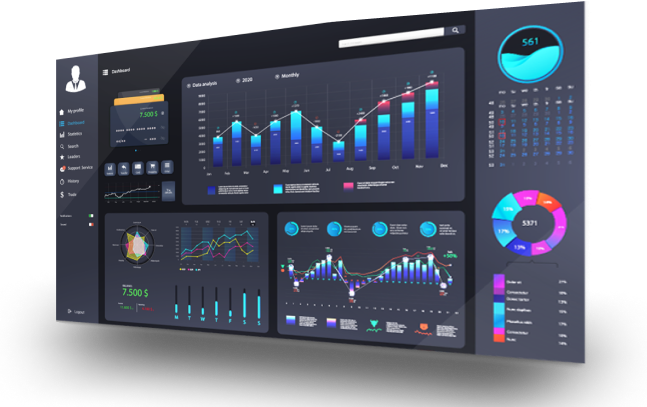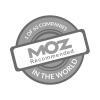A live blog of a session at Internet Summit 2012 in Raleigh NC.

Panel:
- Duane Forrester, Sr. Product Manger, Bing
- Sharon Knitter, Sr. Director of Mobile, Cars.com
- Jim Tobin, President, Ignite Social Media
- Jed Williams, Program Director, Social Local Media, BIA/Kelsey
- Moderator: Adam Schultz, Co-founder & CEO, Pruvop
Jed: What does SoLoMo even mean? Need to separate the components first. Mobile is the platform; social and local are the carriers. On mobile front, explosion of mobile-local search, and what the results look like. Where does social play in? A signal layered on top of local-mobile that can add greater value and ROI to local campaigns.
Sharon: Companies need to figure out what social means in their categories. How can they use the information from many to benefit the individual searcher?
What is the future of the mobile browser or apps on devices? Which will people use?
Sharon: It has to be mobile first. Then from there it is a business decision. Look at customers: what is the likelihood of long term app use for them?
Jim: Many businesses missing opportunities by not thinking about what info their customers need on the go.
Jed: Small businesses must have mobile web first.
Duane: The future of mobile sites is NOT mdot. Start thinking responsive design and HTML5. Search engines don’t like mdot, and are going to disfavor them more in the future. Do your homework. Do usability testing before launching. Assign a $ value to every part of your site and track!
What trends and tools do you see in Geotargeting?
Jed: You have to start on the user side and realize local search is exploding. Includes in-app search. Have to think what the end game action is for your particular business and goals.
Jim: Amazon.com is best local marketer on the planet, and they don’t have a single local location! People check reviews when in a local store. Krispy Kreme’s app only tells you when the donuts are hot in their area, because that’s the main thing their customers want to know. KEY: think about the offline action you want to generate; design your mobile experience to lead to that.
Duane: Krispy Kreme has created Pavlov’s App!
Sharon: Car buying is inherently local. But if I know you’re on a dealer lot, I can give you info you need right then from my global site. What if when someone was on a dealer lot I could signal the dealer that this is a premium customer who deserves extra attention.
Duane: Maybe even use user data to recommend who at the dealership would be the best salesman to talk to me.
How are local service based industries supposed to compete when they don’t have brick and mortar locations?
Duane: First step is SEO for local. Next is to get more signals to search through social. Get local people talking about you. Search engines will learn to serve you up as a local result if local people are talking about you. Bing Places team is paying attention to the fact that a franchisee might actually be “local” to a much larger area (serving several zip codes for example). Social like FourSquare checkins helps the search engines to see the range of your service.
Jed: More and more agencies and publishers that work with small businesses are realizing that listings and rep management are more critical than ever. Get the citations and good reviews.
Jim: If customer is happy, ask them to post review.
Duane: Look for areas to expand into existing online communities. Become a valuable member there and the members will amplify you. This again becomes another signal to the search engines. The engines understand context; know the difference between “fat” and “phat.” So they know the sentiment around your business. It’s even OK to have negativity out there as long as you are in there and responding. On my way here, I tweeted Delta about a problem. 72 hours later they still haven’t responded. That becomes a double negative signal to a search engine.
Sharon: There isn’t a dollar you invested in the web ten years ago that you don’t wish now you’d spent $2. Think the same way about mobile. But of course budget choices are still hard.
Jim: “I don’t have time for social.” If it truly will value you, then what are you spending time on that is not giving you as much value? Write down the ten or twenty things you could do mobile/social? Which will give most return – do that now.
Will Amazon disrupt the search engines for local?
Duane: Stop thinking of the query and start thinking of the session. The query only tells a small part of the story. A session of search for product research can take weeks, and have many different queries along the way. Amazon is great for things that are objects, but tons of services they can’t cover.
Jed: 70% of mobile query chains are completed within an hour, so shorter session.
Duane: A session is the total time to completion of what the searcher is after.
Jed: Then search engines need to capitalize on mobile experience to be in that short mobile session.
What are the trends about how people begin their search for something?
Jed: General query starts in the browser. Much less research into search within mobile apps.
How do we handle the real time challenge?
Duane: I automate like a mo-fo (for social). Automation of content is bad though! Even if you automate, you have to still be wiling to respond to all who reach out to you.
Sharon: People have a much faster expectation for response when their query comes from mobile. So don’t go mobile unless you’re prepared for that.
Jim: For some businesses, like restaurants open late, there will be more expectation of immediate response.
What is the one piece of advice related to theses channels you would offer as we finish?
Jed: Just can’t sit in the lab and concoct experiences. You must test with customer base. You must be listening to them. And pay attention to the social signal layer. App developers are thinking about the bigger actions that social signals can drive.
Jim: Social and mobile are a little separate in terms of behavior. Social is not when you are trying to find or buy something. Focus on social as an input and output to your mobile. Think about why someone would share.
Sharon: Don’t get hung up on these terms and definitions. Same strategies as before: providing value to customers; be practical; understand your brand position.
Duane: Marketing hasn’t changed since we figured it out in the 1930s, just the bandwidth. The reason people share info hasn’t changed. Second, personas are crucial. Have to know my users and build to fill her needs.
END OF SESSION












